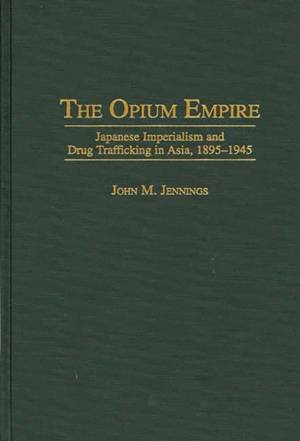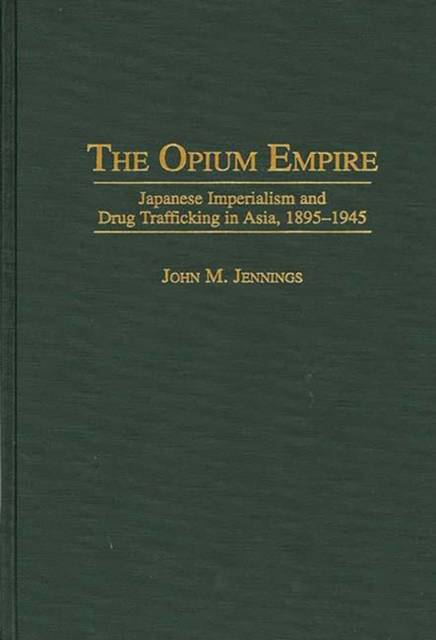
Bedankt voor het vertrouwen het afgelopen jaar! Om jou te bedanken bieden we GRATIS verzending (in België) aan op alles gedurende de hele maand januari.
- Afhalen na 1 uur in een winkel met voorraad
- In januari gratis thuislevering in België
- Ruim aanbod met 7 miljoen producten
Bedankt voor het vertrouwen het afgelopen jaar! Om jou te bedanken bieden we GRATIS verzending (in België) aan op alles gedurende de hele maand januari.
- Afhalen na 1 uur in een winkel met voorraad
- In januari gratis thuislevering in België
- Ruim aanbod met 7 miljoen producten
Zoeken
The Opium Empire
Japanese Imperialism and Drug Trafficking in Asia, 1895-1945
John Jennings
Hardcover | Engels
€ 210,45
+ 420 punten
Omschrijving
The International Military Tribunal for the Far East (IMTFE) found Japan guilty of deliberately promoting drug abuse as a weapon to further its imperialistic aims in Asia. This study provides the historical context behind the IMTFE's findings from the annexation of Taiwan in 1895 to the end of World War II. Given the extent to which drug use permeated the politics, economy, and culture of Asia, it was inevitable that Japan's rise as an imperial power would lead to contact with, and increasing involvement in, the opium and narcotics trade. This study argues that the nature of that involvement should be understood not simply in terms of a conspiracy to drug the people of Asia into submission, but rather as indicative of the general twists and turns of Japanese imperialism. Thus, opium and narcotics emerge not so much as a weapon of, but rather as a metaphor for, Japanese imperialism in Asia.
Specificaties
Betrokkenen
- Auteur(s):
- Uitgeverij:
Inhoud
- Aantal bladzijden:
- 176
- Taal:
- Engels
Eigenschappen
- Productcode (EAN):
- 9780275957599
- Verschijningsdatum:
- 22/04/1997
- Uitvoering:
- Hardcover
- Formaat:
- Genaaid
- Afmetingen:
- 162 mm x 245 mm
- Gewicht:
- 453 g

Alleen bij Standaard Boekhandel
+ 420 punten op je klantenkaart van Standaard Boekhandel
Beoordelingen
We publiceren alleen reviews die voldoen aan de voorwaarden voor reviews. Bekijk onze voorwaarden voor reviews.









